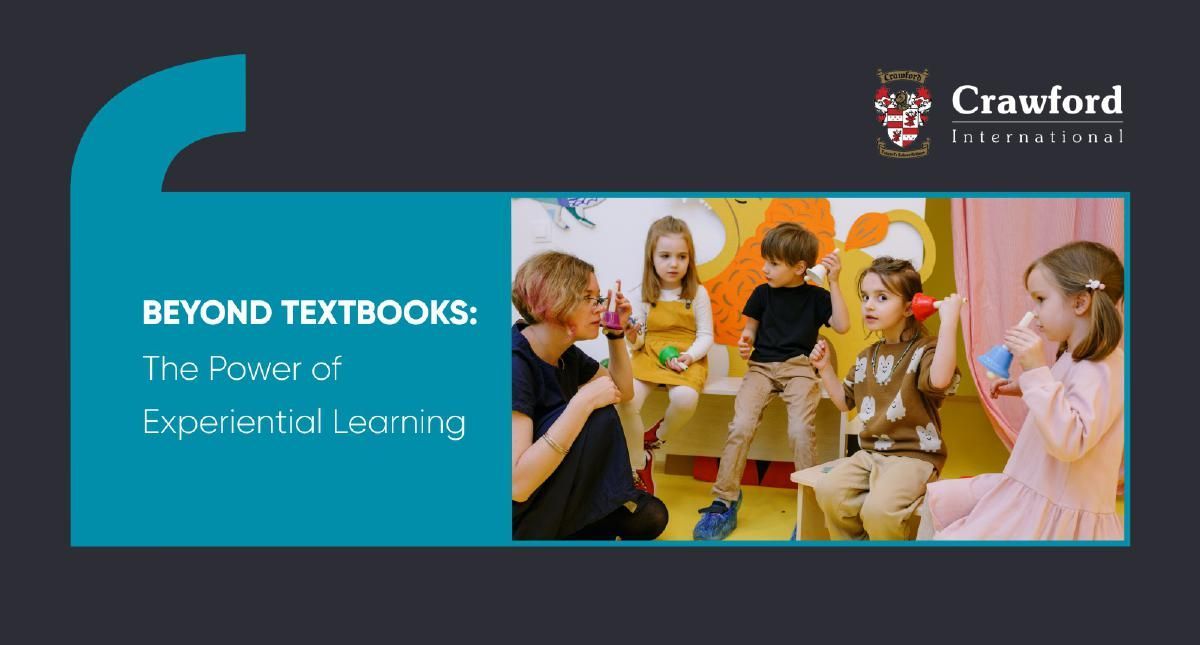Beyond Textbooks: The Power of Experiential Learning
Karabo Molokomme • November 17, 2023

Beyond Textbooks: The Power of Experiential Learning
Many have said that the most effective approach to learning is through hands-on experience. At Crawford International, our educational philosophy extends far beyond the confines of traditional classrooms and textbook-based teaching methods. Crawford International is about evolved education on many levels and ‘Experiential Learning’ is one such educational evolution.
What is Experiential Learning?
Experiential Learning is a forward-thinking teaching method where active engagement boosts the absorption of information, and the overall love of learning. The method involves immersing students into real-world scenarios where they can apply the theoretical lessons they have learned in class and therefore develop their critical thinking abilities and other essential skills that will be transferrable to aspects of real life. Examples of Experiential Learning lessons include:
- Field trips
- Art exhibitions
- Science experiments
- Role playing
- Mock business creation
- Industry internships
- Interactive classroom games
- Teacher-student role reversal
- Volunteering
- Project creation and management
The Experiential Learning possibilities are endless, and exciting.
What are the four Experiential Learning stages?
Stage 1: The Actual Experience (The Starting Point)
This is where students are fully immersed in an actual activity of learning. We are talking about real-world scenarios, experiments, internships and role-playing where practise meets theory. Subject examples include:
- STEM Subjects: Examples involve experiments in a lab and first-hand observations.
- Art Subjects: Here students would actively create art using different mediums and tools and reference historic artists and practises as they go.
- Business Subjects: Students would create mock businesses, or they could possibly intern at real businesses that align with their subject choices. This will help them to work on their strategy, decision making and management skills.
- Technology Subjects: Experiential learning would include augmented reality and possibly coding projects.
- History: Here students would go on relevant field trips, meet people who lived-through historic events, create their own museum displays and information stations for example.
Stage 2: The Reflection Stage
This is an important stage because no experience can be fully understood if there is no reflection afterwards. Findings of the experience need to be documented and analysed, and patterns, processes and information identified. The most important aspect of this stage is a written (and well-thought out) conclusion. Here the student is allowed to integrate their experience with their class-learned knowledge.
Stage 3: Abstract Stage
Based on the learning experience and the conceptualisation of the above two stages, this Abstract Stage dives into the development of theories and concepts around the findings. It is all about extracting the principles learned, and here is where critical thinking skills kick in to high-gear – an important pillar of the Crawford education model. Formulating a concept around the experience is an example of deep and impactful learning.
Stage 4: Experimentation Stage
Testing, testing 1,2,3! At this stage, the students have experienced, reflected and conceptualised, now they must test. This involves exploration of other possibilities, problem-solving of questions and refining their understanding to include all angles of thought.
Here’s to the future
In essence, Experiential Learning demands a heightened level of commitment, necessitating increased creativity, meticulous planning, extended time investments, augmented resource allocation, expanded networking efforts, comprehensive assessment criteria, and enhanced organisational skills. Therefore, Experiential Learning cannot, and is not, offered at all schools. At Crawford International, we have worked hard on creative solutions to ensure seamless integration of this learning method into our curriculum. This means we offer all of our students the vast benefits of Experiential Learning. The future of Experiential Learning holds great potential for revolutionising education and truly preparing students for the real world and all its challenges.












